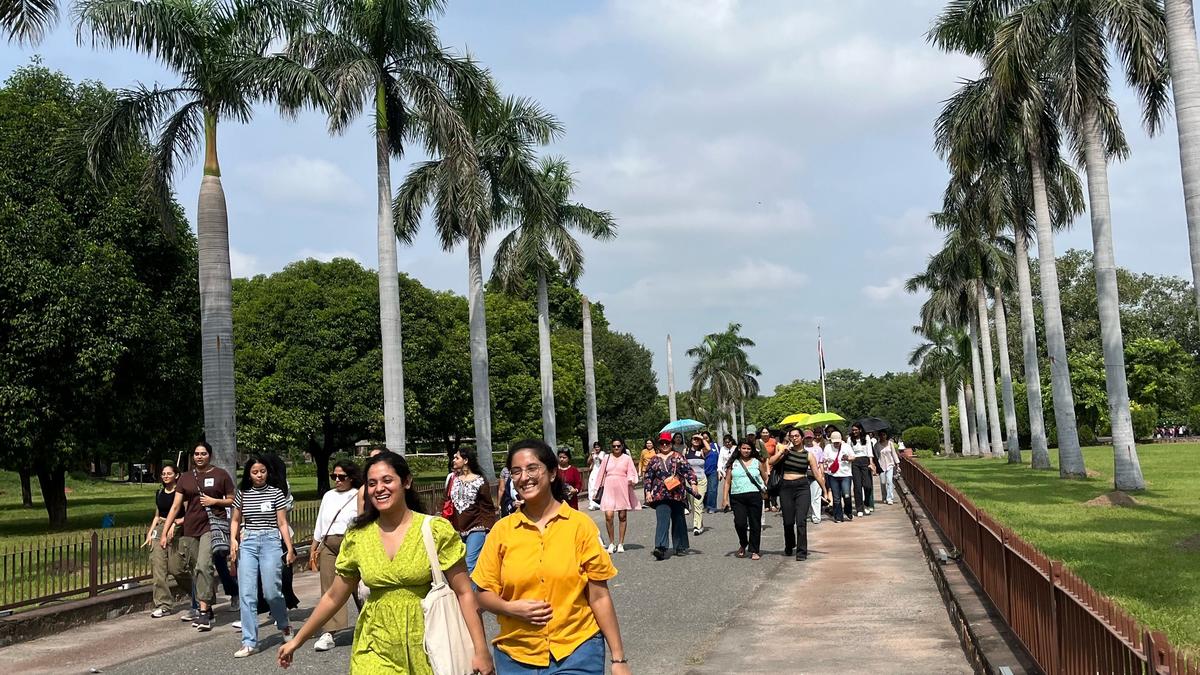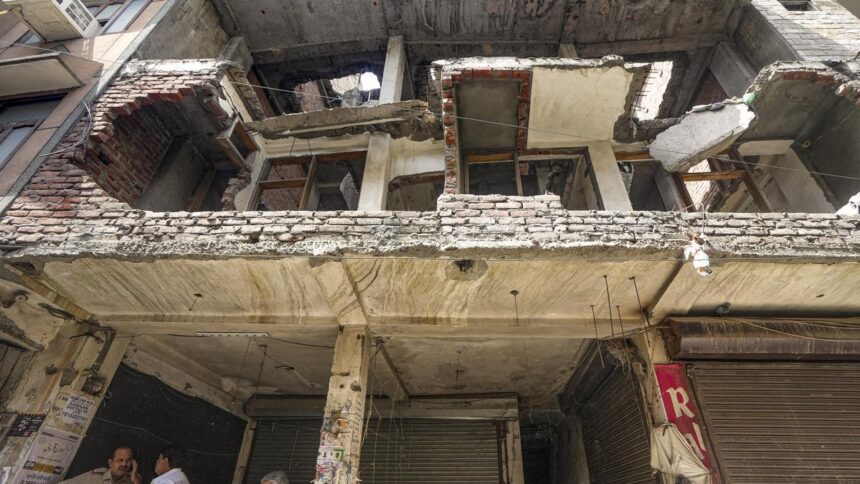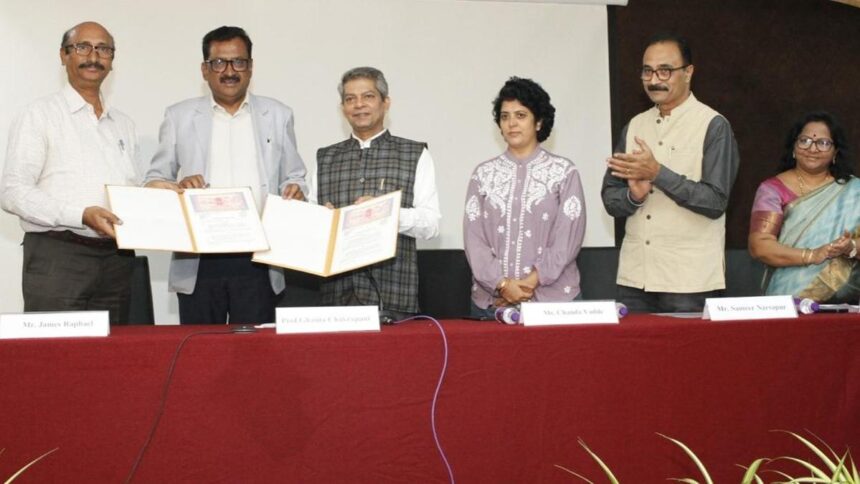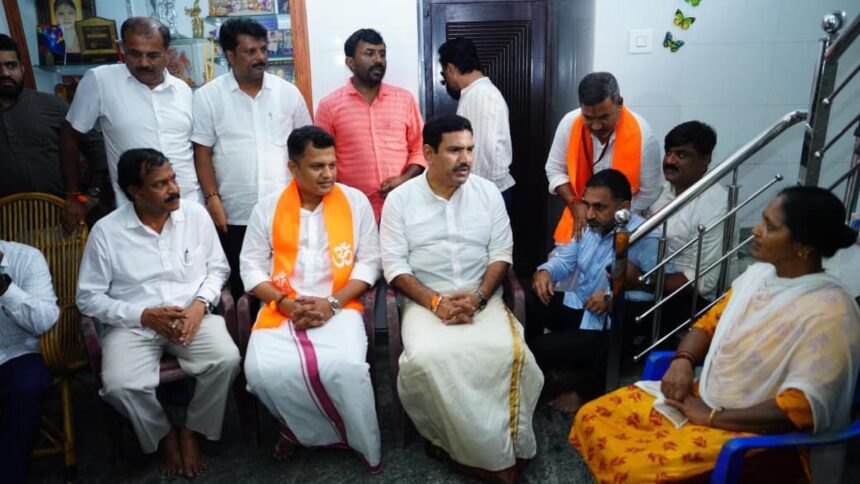Sisterhood bonding
In a world where women are often bogged down by their household chores, Manisha Kalra is helping them retrieve their hobbies, learn about history and culture through walks and, also network for jobs
Her ‘City Girls Who Walk Delhi’ (CGWWD) offers a perfect weekend getaway for women together discover heritage spots in the city or bond over an art workshop. In 2023, Manisha stumbled upon City Girls Who Walk (CGWW) based out of New York and it prompted her to start a similar group in Delhi.
CGWW-Delhi members meet every weekend to revive what it feels like to sit with your ‘girl gang’ and chat. Manisha shifts from being a marketing manager on weekdays to the community leader of CGWWD on weekends.
Walking communities are thriving post-pandemic because people crave connection and a sense of belonging besides support through like-minded individuals, she says.
The CGWWD walk club came into existence in March 2023to provide a safe space to the city’s women to learn and grow together. “We have members from 18 years to 50 years and they all mingle and interact while walking around Lodhi Garden, Sunder Nursery or any other heritage monuments,” says Manisha.
Each weekend, the members are motivated to join the walk and also the club for different activities such as yoga, zumba, painting or even a fun walk in sari and sneakers to Purana Quila.
Last June during peak summer we were about to cancel a walk but 100 women turned up; they said it was a respite from daily chores, says Manisha. That is when she realised the importance of helping women to regain their identities.
Workshop fee ₹400 to ₹600; Contact on Instagram @citygirlswhowalkdelhi
When past whispers pride
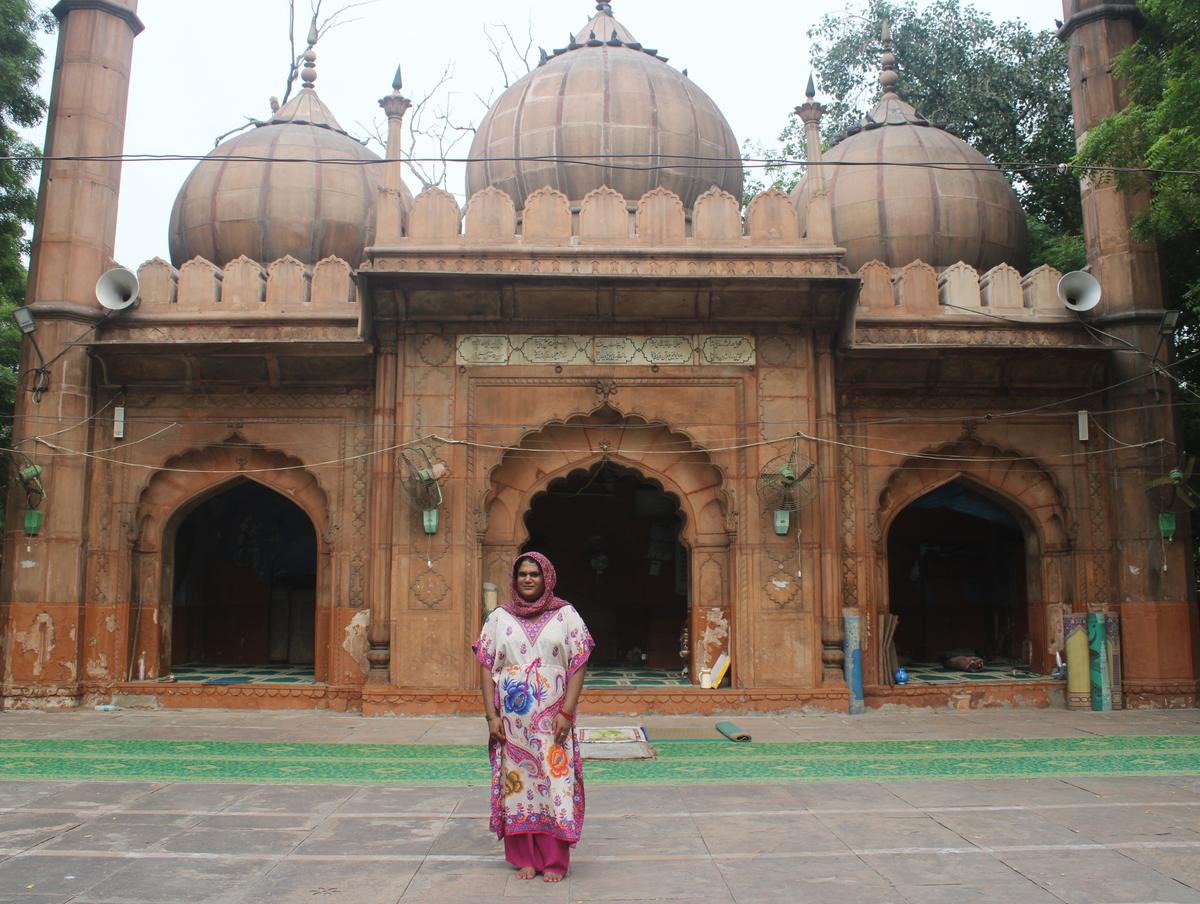
Batool Ali, conducts heritage walks to sites with queer history and leads the Delhi queer heritage walk,
| Photo Credit:
ANUSHKA KOGTA
The monuments and historical sites in the city hold tumultuous stories, some lost and some still spoken aloud. Batool Ali speaks of a third kind of storiesthat reveal the history of the city’s queer community.
The Delhi Queer Heritage Walk is led by trans-woman Batool Ali, whose perspective about heritage walks changed after participating in one in 2012. “It was a wow moment but it frustrated me because during a three-hour walk, only one historical figure was mentioned,” she says.
Batool Ali dived into archives and four years ago introduced a walk through Meena Bazar and the monuments of Old Delhi from a perspective less known to many.
Applying the queer lens, she takes participants every weekend to the shrine of Saint Sarmad Kashani, right in front of the Jama Masjid. It is mentioned in a 17th Century book Dabistan-I-Mazahib that saint Sarmad Kashani fell in love with a Hindu boy in Sindh and both travelled together across the region.
She speaks about Darga Quli Khan of Hyderabad who chronicled the reign of the 13th Emperor of Delhi Muhammed Shah ‘Rangeela’. He described how the artists and performers were patronised and speaks about a 16-year-old trans feminine dancer performing in the market square. The dancer would woo a crowd of soldiers and there would be people waiting to watch her dance for hours.
At the entrance of the Red fort, is one of the three Sunheri masjids built in the 18th century by Javed Khan, an eunuch who held the rank of Daroga, under Mohamed Shah Rangila.
Javed Khan, had gained the title of Nawab Bahadur and held considerable power in the Mughal court until he was assassinated by Nawab Safdarjung. Batool cites this as an example of how trans and queer people were not discriminated during Mughal rule but later the queer space and culture was destroyed by Victorian morality.
Batool is working on a book which she says is going to be a roadmap on the iconic queer monuments that are left abandoned. It will also touch upon the living history of the queer community. “I want to make it mainstream,” she says.
Contact dilliqueerheritagewalks@gmail.com
A timeless echo
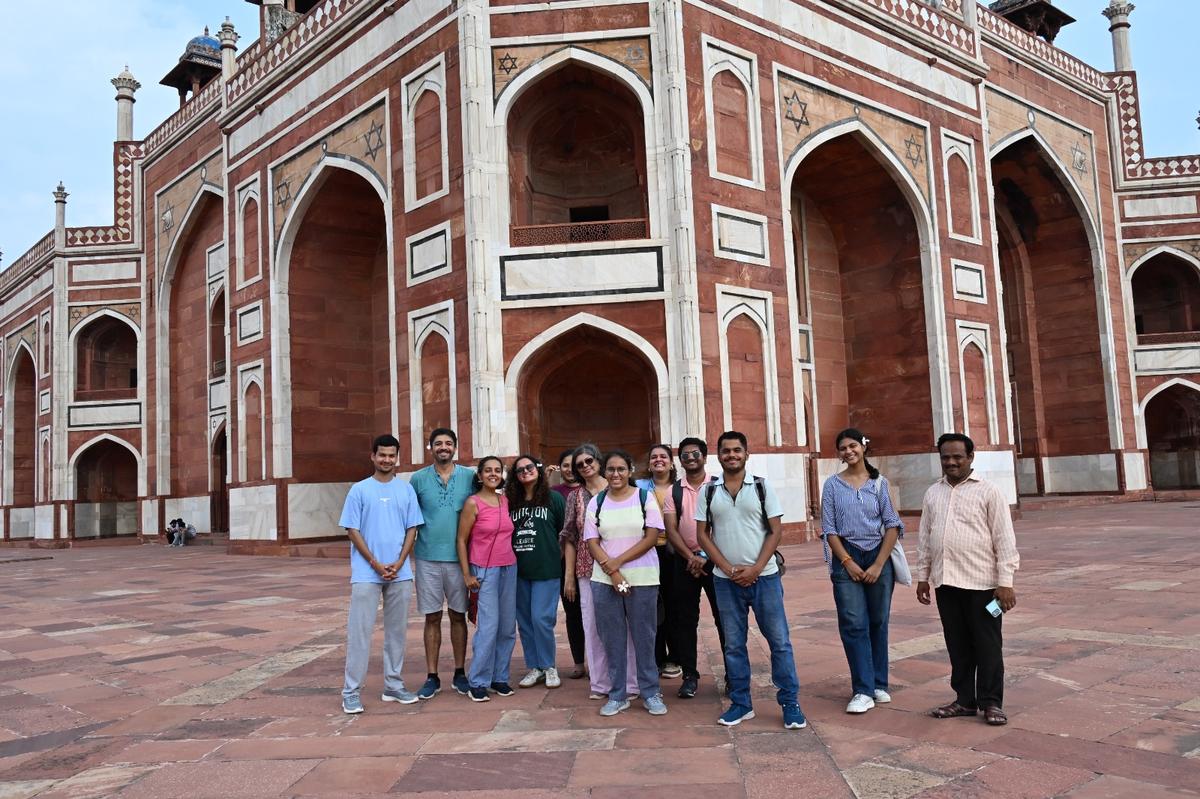
Climate walkers
| Photo Credit:
SPECIAL ARRANGEMENT
On a monsoon day ideal for tea and fritters, a group of individuals start their morning at the Humayun’s tomb complex drawn in by the quiet green and grandeur. Some come for their love for history, few come to partake in a walk while the rest are e simply in search of stories.
Jayati Talapatra and Ajit Velankar launched Dilli Meri Jaan (DMJ) five years ago to help people reconnect with nature and develop a deeper appreciation for the city’s quiet beauty. While history is a major constituent, the Dilli Meri Jaan walks are incomplete without talking about the native birds and the trees planted as part of the restoration process of the Humayun’s tomb.
As conversations shift from the vibrant stones and the buttressed walls of Isa Khan’s tomb to the tragic tale of Humayun’s 15-year exile, the group is serendipitously drawn to the calls of ibis, koel, green barbets and sometimes dancing peacocks. Discussion on the Maulsari trees (bakul), saptaparna leaves and how the Europeans brought Vilayati Kikar with them but while they left, the species never did – enriches the walk with history, memory and ecology.
“Ecology binds people across regions without conforming to political boundaries”, saysJayati, explaining how the trees are contemporaries of the monuments and add depth to history and legacy of the patrons.
Alka Saigal, a retired chartered accountant from NTPC recollects the tale of her father who came from Pakistan as a kid. Humayun’s tomb gave shelter to displaced families during the tumultuous era of partition, including hers. Muhammad Saarim Naeem, a sustainability professional and a regular participant in the walks, says, “I value the moments; we sit in silence, aligned with beauty of nature.”
The DMJ walks are also conducted in Sanjay Van, Sunder Nursery, Safdarjung Tomb. “It is an opportunity to immerse into the serene and simple surroundings,” says regular walker Shivam, an engineer at NTPC.
Only on weekends; Entry fee ₹300 (free for students); Call 9899799335
Published – July 18, 2025 11:22 am IST







